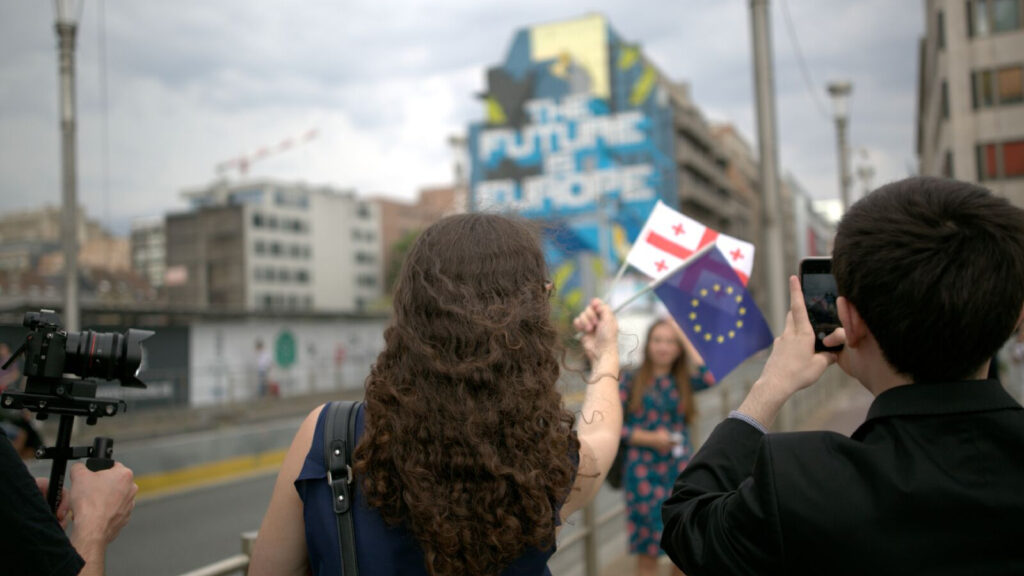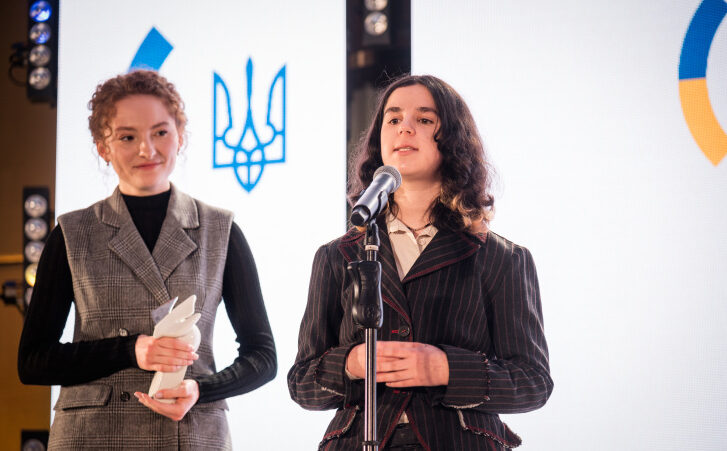
Georgian language: it is not so different!
Ევროპა. Does this look very far from you?
The truth is – this is simply the word Europe. Or the actual pronunciation ‘evrop’a’. I bet this sounds already more familiar.
 Photo: European Union
Photo: European Union
But it doesn’t belong to the Indo-European languages, not the Turkic languages nor is it connected to the Russian language. This language, Georgian, is defined as part of the Kartvelian languages and it is the official language of Georgia. The Kartvelian language family is often also defined as Iberian or South Caucasian. It can be divided into many different subgroups, varying regionally in Georgia, but including also dialects spoken in parts of the Black Sea coast area in Turkey, the Eṣfahān region in Iran and some parts of Azerbaijan. But how European is it?
The development of the Georgian language is dated back to the 1st millennium BC, in the back then in the Georgian territory existing Iberian kingdom. The Roman grammarian Marcus Cornelius Fronto in the 2nd century described the language as an ‘incomprehensible tongue’. Christianity was then the key in the mid-4th century to make Georgian become a written language. It replaced the old Aramaic as the new national language. The first written Georgian texts we can find today are to be dated back to the 5th century and were written in the old Georgian script known as Asomtavruli. Over time the old Georgian language developed, became the middle Georgian (Nuskhuri ) and finally the modern Georgian language (Mkhedruli) as it is spoken and written today. The birth of the modern Georgian language as we know it today is noted to be 1629, when the first book in Georgian language was printed in Rome.
The old georgian script is said to originate from the Greek alphabet. A hint for this is the order of the alphabet and the shape of some of the characters (even though it still differs greatly). The round-form cursive is said to be derived from angular book scripts in the 9th century. But Georgia was a country often in exchange with other European countries over time. Due to its common past, it shares many terms and phrases with the Persian, Arabic or Turkic languages. An example is the term khalkhi (‘people’) from the Arabic khalq, which is in Turkish halk. Other words are Chai (‘Tea’), Zeg (‘the day after tomorrow’) or Finjara (‘window’). But due to its contact with the Greek and Roman cultures also those traces can be found today in the language. Greek words like chanta (‘bag’), scholium (‘school’) or paraskevi (Friday) appear in Georgian as well. But also the Russian influences left its marks in the language. ‘Gazeti’ is the word for newspaper.
And you? Did you get excited and want to learn some Georgian? Then don’t be afraid – Georgians are one of the warmest people you can find in this world. They are more than open to share their knowledge with you…For the start – below you can find a short overview of how to say basic things (in romanized letters):
- Hello-Gamarjoba
- Goodbye-Nakhvamdis
- Sorry, I am sorry-Bodishi
- Excuse me-Uk’atsravad
- Thank you-Gmadlobt
- Please-Ttu sheidzleba
- Yes-Diakh (formal), k’i (neutral)
- No-Ara
LATEST

Building Europe: Poland’s experience of joining the European Union and lessons for Ukraine

World Health Day 2024: My Health, My Right

EUREKA MEETS EUROPE – opportunities to develop and study. My experience

Can you wear pink in the workplace?

Go where your deepest fears lie: finding the courage to overcome gender barriers in STEM
More campaign pages:
Interested in the latest news and opportunities?
This website is managed by the EU-funded Regional Communication Programme for the Eastern Neighbourhood ('EU NEIGHBOURS east’), which complements and supports the communication of the Delegations of the European Union in the Eastern partner countries, and works under the guidance of the European Commission’s Directorate-General for Neighbourhood Policy and Enlargement Negotiations, and the European External Action Service. EU NEIGHBOURS east is implemented by a GOPA PACE-led consortium. It is part of the larger Neighbourhood Communication Programme (2020-2024) for the EU's Eastern and Southern Neighbourhood, which also includes 'EU NEIGHBOURS south’ project that runs the EU Neighbours portal.

The information on this site is subject to a Disclaimer and Protection of personal data. © European Union,